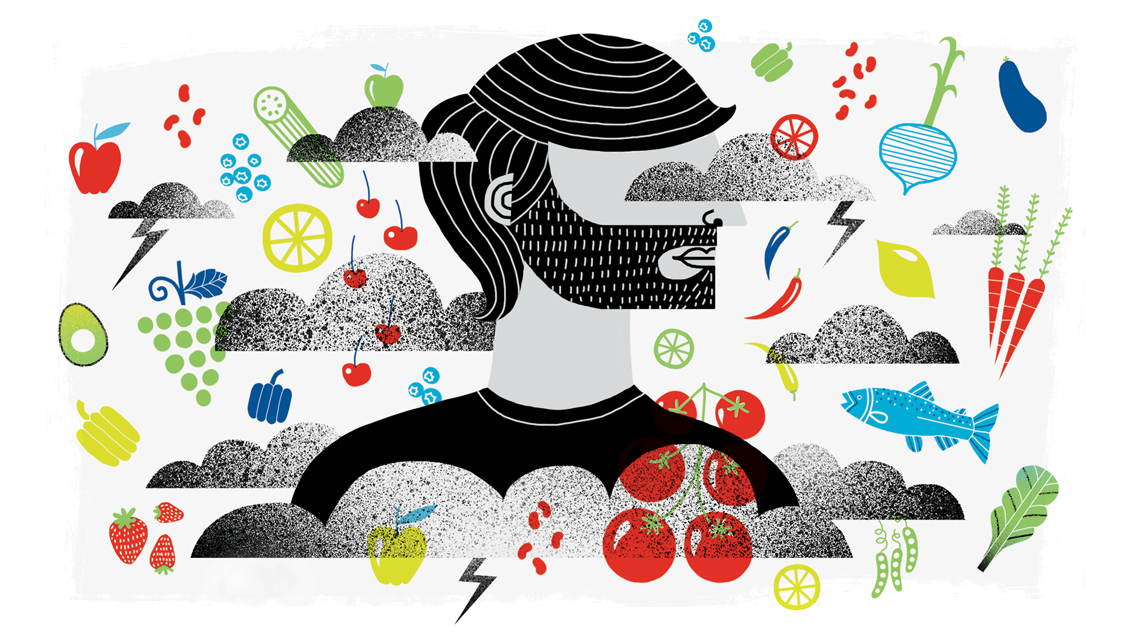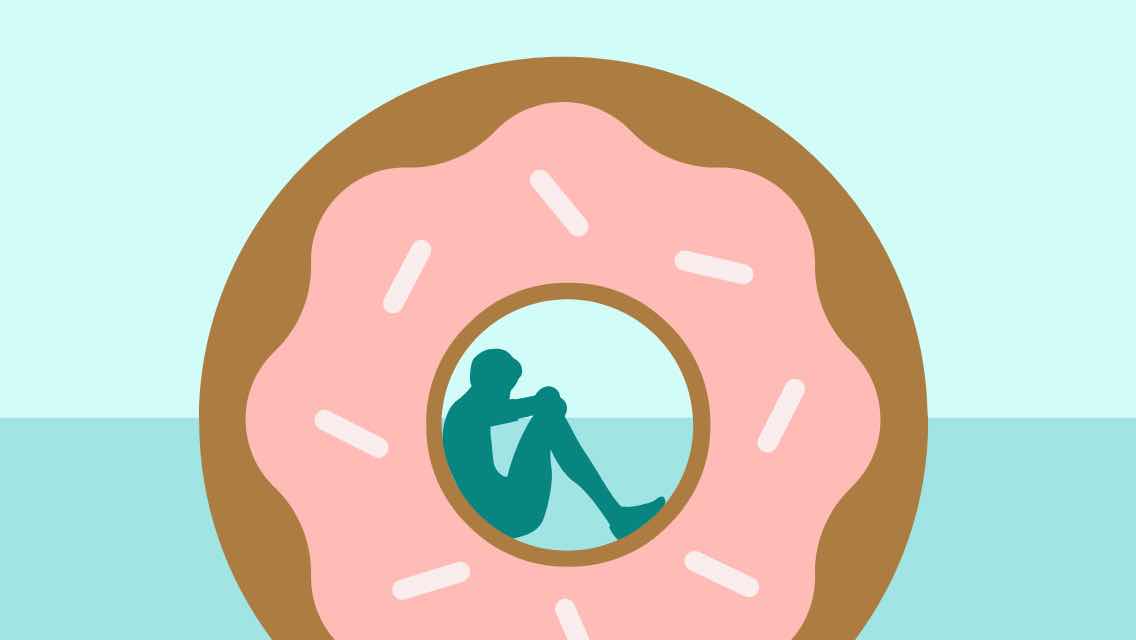1) Blood Sugar
Some of us are more vulnerable to becoming hangry than others, but no one is immune. “If your blood sugar isn’t stable, it can mirror mental health issues like anxiety, depression, and fatigue,” says Lockhart. (For a deeper dive into blood sugar, listen to this Life Time Talks about “How to Balance Your Blood Sugar.“)
The brain runs primarily on glucose, and unstable blood sugar deprives the brain of that steady source of fuel. For example, when we haven’t eaten and our blood sugar dips, the brain doesn’t get the energy it needs to function well.
On the other hand, eating foods that cause blood sugar to peak and then drop quickly — think refined sugars and other simple carbohydrates — can lead to insulin resistance.
Insulin helps maintain our energy levels by shuttling glucose into our cells, explains Lockhart. When we consume a lot of sugar, there’s abundant glucose in the blood, and the cells are constantly exposed to insulin. Over time, this ongoing exposure makes them less sensitive to insulin’s signals — and this harms mood, among other things. “Depression is twice as likely if you have type 2 diabetes,” she notes.
Conversely, well-managed blood sugar can have notably positive effects on the brain. “Keeping your blood sugar stable affects almost every aspect of brain function and energy production and protects your brain as you age,” says Emmons. “It also helps reduce inflammation, which goes a long way toward preventing dementia, Alzheimer’s, and other forms of cognitive decline.”
2) Nutrient Deficiency
Too much sugar isn’t the only diet-related challenge to mental health. The brain requires specific nutrients, and it often doesn’t get them.
“For proper brain and mood function you need to have the right elements, like protein,” says integrative psychiatrist Hyla Cass, MD. “[Protein] contains amino acids that produce neurotransmitters that regulate mood.”
If we’re low in serotonin, Cass explains, we tend to be depressed. Likewise, insufficient gamma-aminobutyric acid (GABA) is linked with anxiety, and a lack of dopamine may affect focus.
These are some of the nutrients the brain needs most:
- Protein: In addition to providing amino acids to build neurotransmitters, protein supports mood by how it helps stabilize blood sugar — and most of us can feel it.
- B vitamins: These nutrients, which act as antioxidants, help transform food into glucose. Specifically, folate (B9) and B12 help produce neurotransmitters necessary for brain function, says Cass. Depression is a common symptom of folate deficiency. (Read “How B Vitamins Can Help Lift Depression” for more.)
- Omega-3 fatty acids: The brain is more than 60 percent fat. “Omega-3’s essential fatty acids support neuronal-tissue synthesis, membrane fluidity, and serotonin metabolism,” says Lockhart. “These mechanisms help to ease anxiety and depression.” (For ways to enhance your diet and health with omegas, see “Why Your Body Needs Omega-3 Fatty Acids.”)
3) Gut Dysbiosis
When our gut is disrupted, our mood often reflects it. That’s partly because the gut communicates with the brain directly through the gut–brain axis, a complex pathway linking the central nervous system and the gastrointestinal tract, where many neurotransmitters are forged. “Friendly bacteria in the microbiome are important for making serotonin, dopamine, and GABA,” says Cass.
This is why the gut is sometimes referred to as the second brain. Some estimates suggest that up to 90 percent of the body’s serotonin is produced by gut bacteria. Glutamate, which contributes to learning, memory, and cognition, is also produced in the gut. (For more on the connection between the gut and the brain, see “Healthy Gut, Healthy Brain.”)
This relationship goes both ways, notes Emmons. “Gut issues, like cramping, bloating, and constipation, are signals that you are stressed or out of balance,” he explains. “They mean that your gut and your brain need your attention.”
4) Food Allergies and Sensitivities
Food allergies and sensitivities can trigger inflammation in the gut. “When the gut is inflamed, so is your brain, putting you at risk for anxiety and depression,” says Emmons.
Gut inflammation can lead to a condition called leaky gut syndrome. When the delicate, single-cell barrier of the gut becomes damaged, it enables food particles to leak from the gut to the bloodstream; the immune system recognizes these particles as invaders and launches an attack.
This is how inflammation that starts in the gut spreads systemwide. Antigens crossing the blood–brain barrier can trigger inflammation in the brain. Neuroinflammation is associated with a range of mood and brain-health issues, including cognitive decline. (For more on leaky gut syndrome, see “What Is Leaky Gut?“)
Learn about the connection between food and mood and what you can eat to support your mental health at “How Diet Can Make — or Break — Your Mental Health,” from which this article was excerpted.





This Post Has 0 Comments